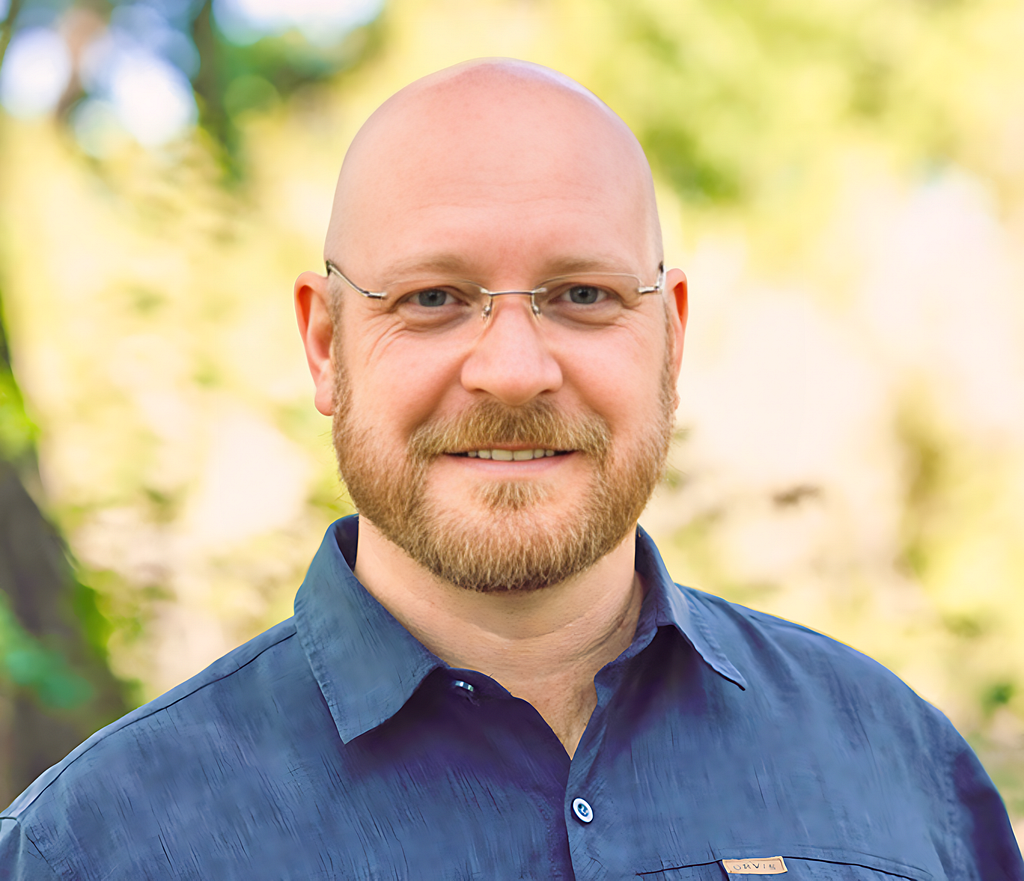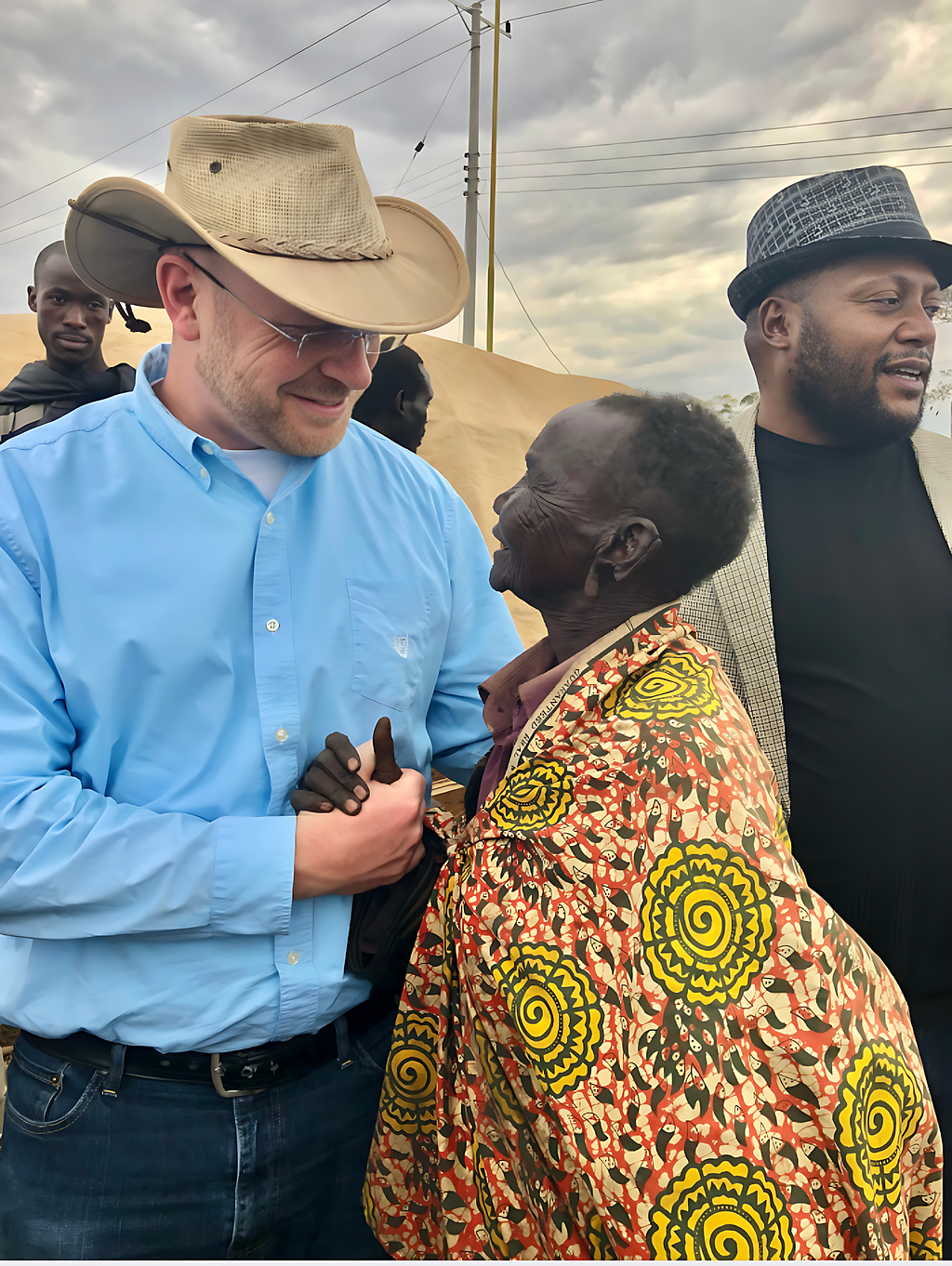Tim Stewart of Impact Nations on 5 Things You Need To Know To Successfully Lead A Nonprofit Organization

Get your own personal cheerleaders and listen to them. On those days that you are feeling discouraged or when you’re ready to go back to selling tires, you’ll need someone from outside your organization to remind you of who you are, what you stand for, and what you are accomplishing.
As part of my series about “individuals and organizations making an important social impact”, I had the pleasure of interviewing Tim Stewart.
Tim Stewart has been the CEO of Impact Nations since March 2017, overseeing daily operations and collaborating closely with staff and international partners.
Impact Nations is a non-profit organization dedicated to partnering with leaders in the developing world, rescuing lives and transforming communities. Impact Nations focuses on working with the most vulnerable in the developing world through initiatives like providing crisis assistance with food, clean water, and medical care, rescuing individuals from human trafficking, prostitution, and other forms of exploitation, engaging in sustainable development projects such as infrastructure, education, and vocational training, and promoting spiritual transformation.
Before joining Impact Nations, Tim spent six years in the corporate sector, where he trained future leaders for Canada’s largest tire retailer. His transition to Impact Nations represents his commitment to utilizing his experience in corporate and applying certain strategies to the nonprofit sector.
He is excited to share five effective strategies to run a successful non-profit based on his experience as the long-running CEO of Impact Nations.
Thank you so much for doing this with us. Before we begin, our readers would like to get to know you a bit more. Can you tell us a bit about your “backstory”?
After five years of marriage, my wife and I moved to the Philippines. My wife loves people better than I ever will, so when doctors told us we couldn’t have children, she decided to help impoverished women from the slums of Davao City have children. For nearly four years, she served as a midwife in a charity birthing center, serving young couples and single moms as they struggled through brutal circumstances. Meanwhile, I traveled throughout the country to remote villages, helping people gain access to clean water.
Six months after we moved to the Philippines, we were pregnant with our first child. I guess the doctors were wrong. We served in the Phils for nearly four years, had another baby, and then moved back to Canada.
I took a job as a manager at Kal Tire. I stunk at changing tires, but I loved leading teams and managing the business, and I soon discovered that I was especially passionate about training other managers. I found it so rewarding to meet with young leaders helping them to set and achieve their goals.
Can you tell us the story behind why you decided to start or join your nonprofit?
My parents started Impact Nations by accident way back in 2003. My wife and I traveled with Impact to the Dominican Republic in 2006, and that’s when we caught the bug to help bring restoration to the poor and vulnerable. Somehow, a trip to the DR caused me to move to the Philippines. Go figure.
When we returned from the Philippines, I was happily minding my own business, managing tire stores. I narrowly escaped a promotion that would have been brutal for my family, and, if I’m being honest, the long hours weren’t rewarding enough, and I was tired of coming home smelling like rubber.
That’s when Mum and Dad took us out for lunch one day. It turns out it was more than just a lunch. People have said of my father, “God loves you very much, and Steve has a wonderful plan for your life.” This was one of those “wonderful plan” lunches. Their board of directors was hoping to grow the organization and looking for a Director of Operations to help them reach the next level.
I didn’t think my experience in the tire business would be very applicable, but in fact, those management and leadership skills were exactly what the organization needed. Now, I get to spend every day coaching powerful and brave leaders around the globe who are effecting change in some of the world’s darkest corners. At the end of each day, I can come home to my family, knowing that people I will never meet have just had their future forever changed for the better. And I don’t smell like rubber anymore!
Can you describe how you or your organization aims to make a significant social impact?
When a 13-year-old girl has been abused and abandoned and now finds herself pregnant and alone, living on the streets of Kampala with nowhere to turn, she needs more than “social impact.” She needs rescue. When a six-year-old boy spends his days working as a slave in a brick factory in Asia, he needs immediate intervention. At Impact Nations, we’re bringing rescue and restoration to the people that you’ll never see, people you’ll never hear about. Our global network of leaders is finding those who have lost all hope, and together, we are declaring, “We see you, we love you, and everything is about to change.” After rescuing people from immediate danger, we provide ongoing counseling and mentorship while giving them the knowledge, resources, and confidence they will need to flourish. Our goal is to change their trajectory and bring generational transformation.
Without saying any names, can you share a story about an individual who was helped by your idea so far?
I’ll use a fake name, but I want to celebrate a young lady from Uganda who has gone on to inspire so many others…
At the age of 17, Joanna was seven months pregnant, homeless, and alone. The father of her unborn baby was long gone, and her family had kicked her out of the house because of the shame of her pregnancy.
When we found her, Joanna was standing at the edge of a lake, ready to drown herself and her unborn son. Our partners brought her back to their shelter, where she found safety, food, and the medical care that she needed to carry her baby to term.
In the months that followed, everything changed for Joanna. She experienced love each day as our team cared for her and her newborn son. Soon, she was learning new marketable skills and gaining an understanding of business at our School of Purpose.
After her baby was born, she found the confidence to enroll in university while supporting other young women through their healing journey. Joanna now oversees our Girls Business Club program, helping other girls discover their destiny and become self-sustained. Each student looks to Joanna with admiration, knowing that if she can do it, they can, too.
Joanna recently graduated from Ndejje University with a Bachelor’s in Procurement and Logistics Management. She went from suicidal and homeless to college graduate and mentor in just a few short years.
At her graduation, one of the women who was there to rescue her from the lakeshore stood up and said, “I can’t believe this is the same girl I picked up that day. The transformation I see makes my heart swell with pride, knowing that by saving you, we saved another whole generation.”
Are there three things the community/society/politicians can do to help you address the root of the problem you are trying to solve?
- Seek out social entrepreneurs in the developing world, then give them your business. At Impact Nations, we hire video editors, graphic designers, and even marketing consultants who hire and train people from notorious slums. In addition to providing jobs for the marginalized, the profits from these businesses are being poured back into supporting vulnerable communities.
- Direct more aid dollars to helping the poor become self-sustained. By and large, in my experience, people long for dignity more than handouts — they ultimately want to provide for themselves and achieve their own dreams. Economic development can be a long road marked with difficulty and detours, but if you can stick with it, the lasting change is so worth it.
- Tell your friends about your giving — maybe not the dollar amount, but certainly who or what you are giving to. I know Jesus told us to keep quiet about it, but if people got half as excited about their favorite charity as they do about the show that they are currently binging, this world would be a better place. If there is a cause that has stirred up your passions to the point that you have given to it, why not tell someone else about it? Most businesses grow through word of mouth. Why can’t charities be the same?
How do you define “Leadership”? Can you explain what you mean or give an example?
I think leadership is willing to be wrong as you make the best decision that you can at the moment. One must balance humility with confidence, which is no easy feat. The people you lead should feel confident that you know where you’re going, but I think it’s okay if sometimes they witness you trying to figure out how to get there.

Based on your experience, what are the “5 things a person should know before they decide to start a non-profit”.
- It’s not about you. Surround yourself with courageous, talented, integrious people and then celebrate them each and every day.
- Don’t get caught up in the administration too soon. Accomplish some great things first, then figure the rest out later. If you start with red tape, you’ll never get off the starting line.
- People give to people — not to organizations and definitely not to statistics. Tell great stories and celebrate the heroes.
- Get your own personal cheerleaders and listen to them. On those days that you are feeling discouraged or when you’re ready to go back to selling tires, you’ll need someone from outside your organization to remind you of who you are, what you stand for, and what you are accomplishing.
- Family first. Your spouse and children can be interested in your work, but they should believe that you find their world way more interesting than anything else you’re working on.
We are very blessed that very prominent leaders read this column. Is there a person in the world who you would like to talk to, to share the idea behind your non-profit? He or she might just see this, especially if we tag them. 🙂
Someone I really look up to is Stephen Colbert. He operates out of a place of empathy, and I find that so inspiring and challenging.
Can you share your favorite “Life Lesson” Quote? How is that relevant to you in your life?
My father always says, “Follow a leader who walks with a limp.” Every experienced leader has made at least a few big mistakes along the way. I’ve made a few whoppers in my time; ask me about when I accidentally hired a convicted felon. The leaders worth following are the ones who acknowledge those mistakes but have the courage to keep going with their newfound wisdom.
How can our readers follow you online?
Impactnations.com
https://www.facebook.com/impactnationsministries/
This was very meaningful, thank you so much. We wish you only continued success in your mission.
Tim Stewart of Impact Nations on 5 Things You Need To Know To Successfully Lead A Nonprofit… was originally published in Authority Magazine on Medium, where people are continuing the conversation by highlighting and responding to this story.
